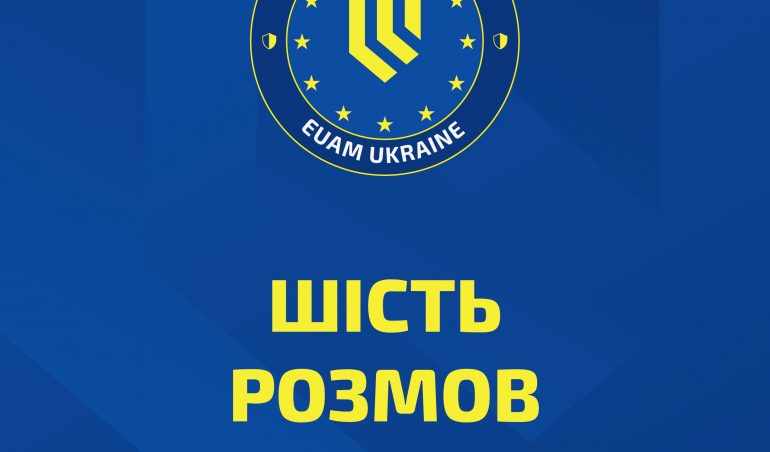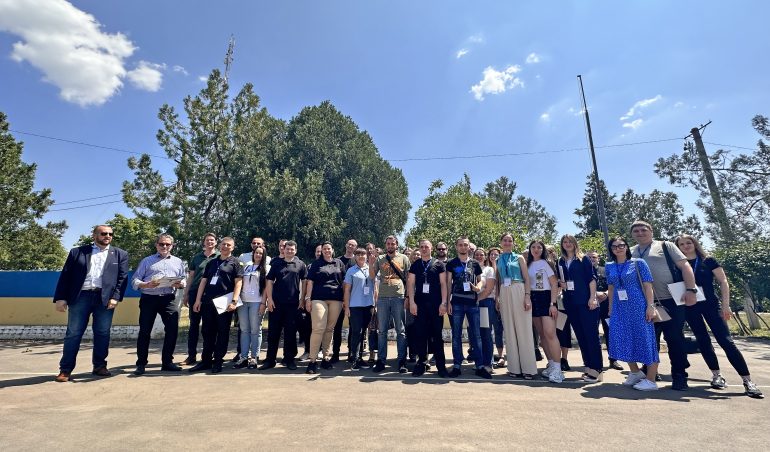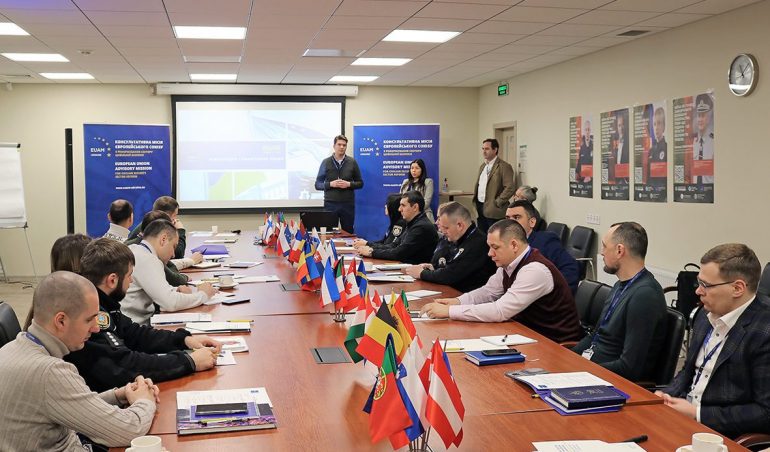How to Avoid Re-Traumatizing Victims of War Crimes During Investigations and Trials
March 29, 2024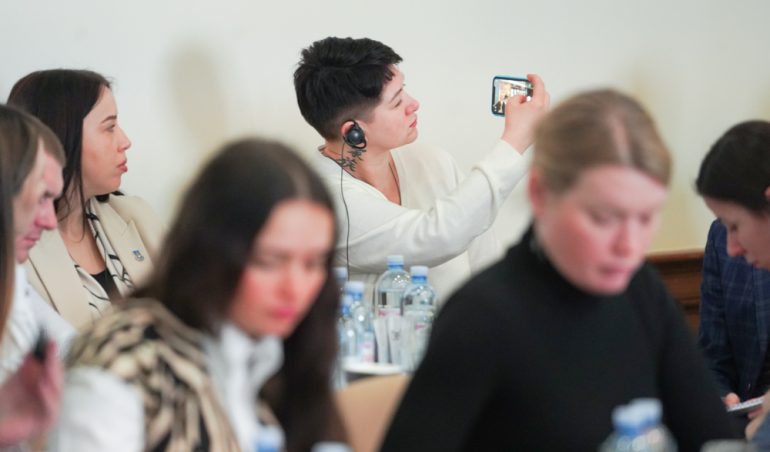
She made an effort to stand and speak. She never said her name but shared her pain. Her voice was trembling. At times, she couldn’t hold back her tears. It was evident this wasn’t her first time sharing her story – a testament by a survivor of the Russian occupation steeped in pain and sorrow, nightmares and phobias. Each word seemed to resurrect her suffering; a vivid reminder of the countless victims still haunted by war’s cruelty.
The EU Advisory Mission (EUAM) Ukraine has a long-standing engagement in supporting of victims’ rights. A focus intensified by the full-scale Russian invasion. The Mission has advised on aligning Ukrainian laws with EU standards and bolstered the capacities of civil security sector institutions. The establishment of the Victim and Witness Coordination Centre by the Office of the Prosecutor General (OPG) in 2023, widely supported by EUAM, significantly advances the protection of war crimes victims.
At the Centre’s request, EUAM hosted a roundtable this week with various stakeholders, including prosecutors, investigators, judges, and civil society organisations, to discuss best practices in preventing the re-traumatization of these victims.
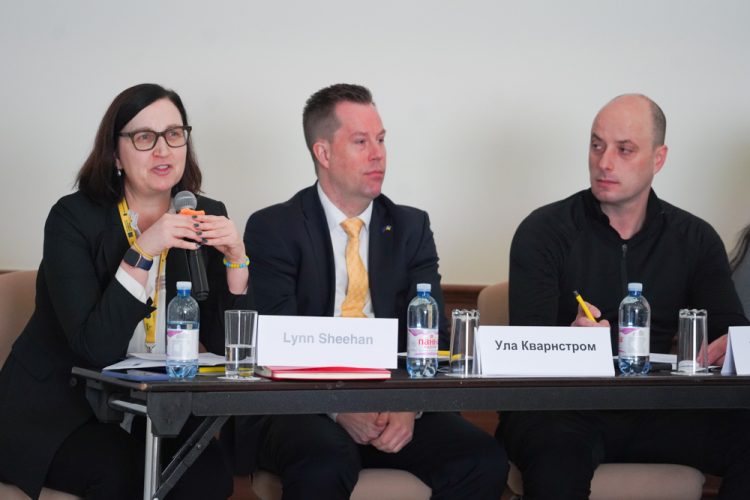
“When victims and their rights are not properly looked after, they tend to lose faith in law enforcement agencies and become reluctant to report crime or actively contribute to investigations,” says Lynn Sheehan, EUAM’s Head of Operations, in her opening remarks. “Protection from re-traumatization of vulnerable victims is also at the heart of the EU acquis on victims’ rights,” she adds.
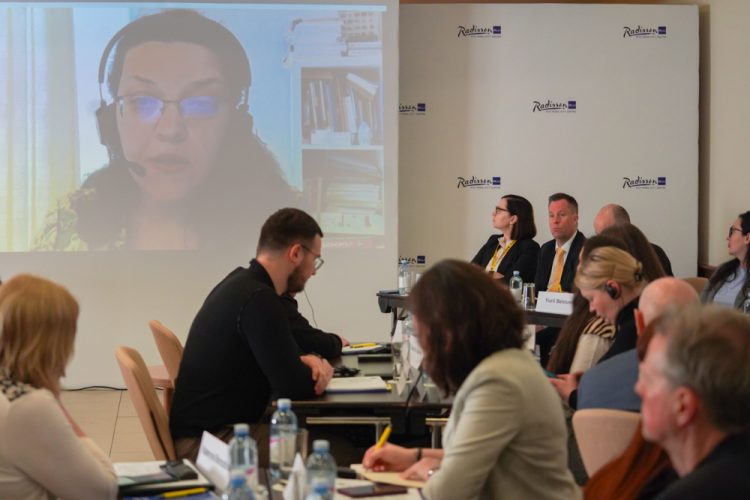
Marieta Tosheva from the Office of the EU Commission Coordinator for Victims’ Rights shared more on EU best practices for protecting victims and witnesses, focusing on the EU Victims’ Rights Directive. At the same time, ACA Consultant Alma Taso-Deljkovic shared insights on preventing the re-traumatization of vulnerable victims within war crimes support mechanisms, drawing on her expertise both on the national and international levels.
Ukrainian colleagues openly discussed the current situation and challenges, pointing out the progress made in the field over the last two years and areas for improvement. Reflecting on the evolution within the criminal justice system in Ukraine, Yurii Belousov, head of the war crimes department at the OPG, observed its transformation away from totalitarian legacies towards a more victim-oriented approach. He also stressed the significance of understanding and addressing the needs of victims and the impact of war crimes on prosecutors themselves.
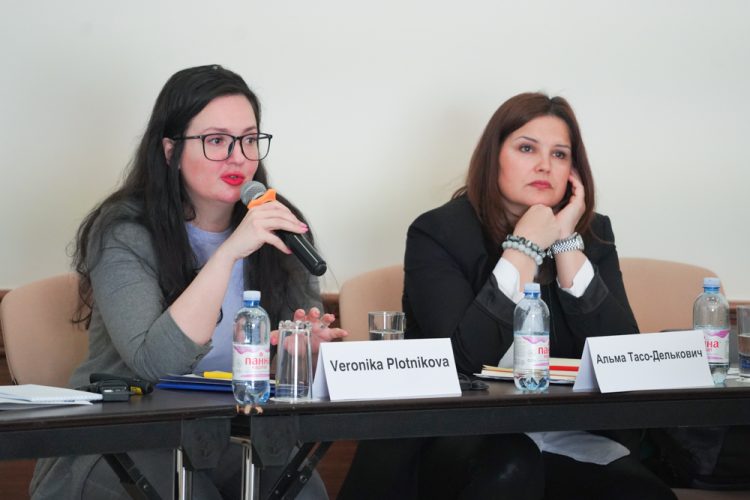
Veronika Plotnikova, head of the Victim and Witness Coordination Centre, emphasised the importance of joint efforts involving the judiciary, the prosecutorial system, and civil society in building a comprehensive support ecosystem for war crime victims and witnesses. Plotnikova highlighted the importance of trauma-informed approaches within the criminal justice system and society at large. She also called for realistic expectations in the pursuit of justice and the importance of honest communication with victims, noting that it’s better to make no promises rather than failing to fulfill them.
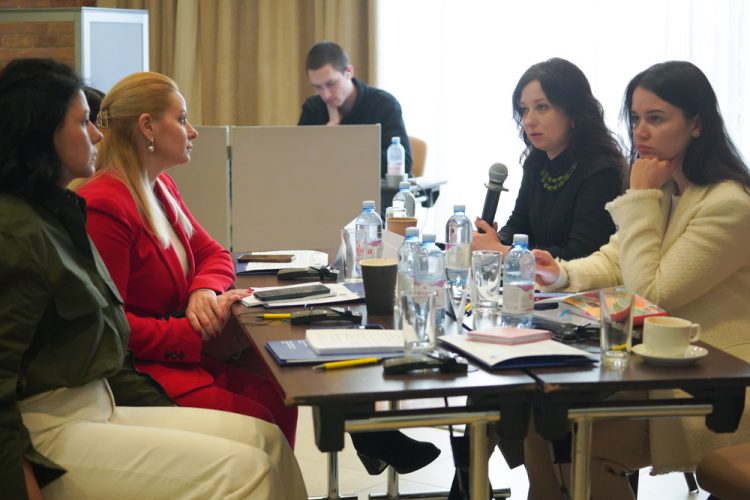
The judiciary also tries different approaches to the prevention and re-traumatization of victims and witnesses in courtrooms. Judge Tamara Zakrevska talked about the use of court volunteers, often law students, to support vulnerable court users, making legal processes less daunting and more accessible. This approach aims to ease anxiety and prevent re-traumatization for victims of crime, ensuring they receive the necessary support, particularly in cases of war crimes and conflict-related sexual violence.
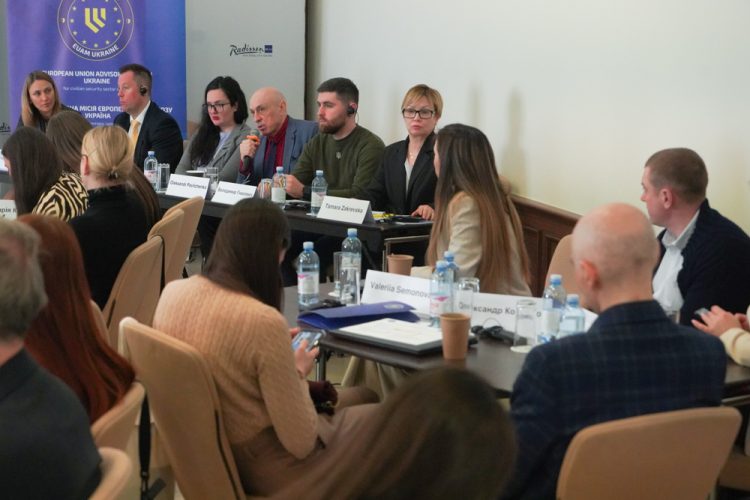
Civil society plays a crucial role in supporting victims of the Russian aggression, frequently augmenting the efforts of state agencies in documenting crimes. While substantial progress has been made over the past two years, some gaps persist. Oleksandr Pavlichenko from the Ukrainian Helsinki Human Rights Union highlighted challenges that victims encounter within the criminal justice system, including the struggle to obtain victim status and a hesitance to interact with law enforcement agencies. This reluctance stems from past inefficiencies dating back to 2014, when the war began.
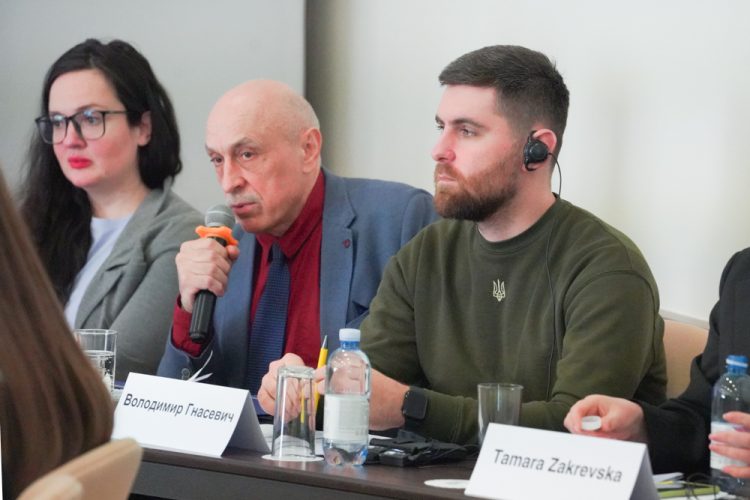
The roundtable identified several recommendations to enhance support for victims, focusing on minimising re-traumatization. These include establishing cooperation protocols among criminal justice actors, integrating trauma-related topics into training curricula, and improving the atmosphere of judicial and law enforcement facilities. Moreover, it advocates for personalising the support provided to victims, ensuring consistent interviewing practices, and facilitating access to interim reparations.
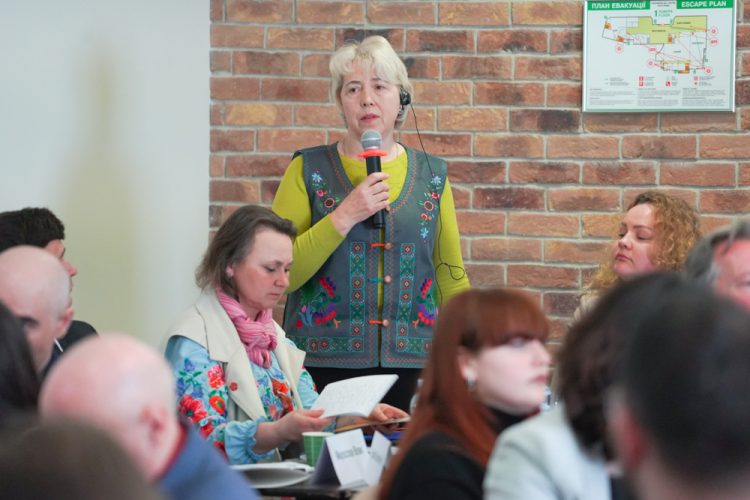
The woman-survivor’s voice at the roundtable resonated with the silent stories of thousands subjected to the Russian military’s brutality and inhumanity. Only a few find the courage to speak up, yet more might step forward if they feel truly heard, cared for, and protected. The Center is set to expand its presence across Ukraine, a crucial step especially for those who have suffered Russian aggression in occupied territories and escaped. It also matters for individuals in de-occupied areas holding essential but painful testimonies, too traumatized to share with law enforcement. Silence serves neither the victims, the witnesses, nor the communities aiming to overcome these traumas.
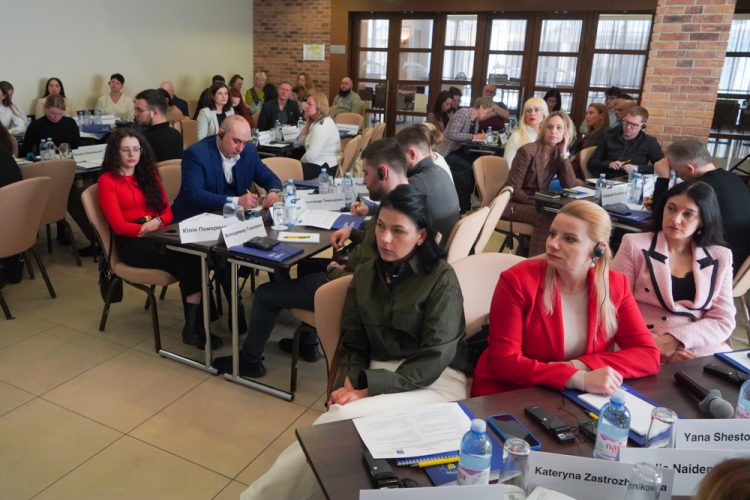
Continued collaborative efforts between state agencies and civil society, with support from international actors, are essential in developing a robust victim-oriented criminal justice system in Ukraine. This approach will not only help prevent additional traumatisation of the victims but also play a crucial role in documenting and prosecuting war crimes. Ultimately, it’s about ensuring that war criminals are held accountable, something deeply meaningful for survivors.


